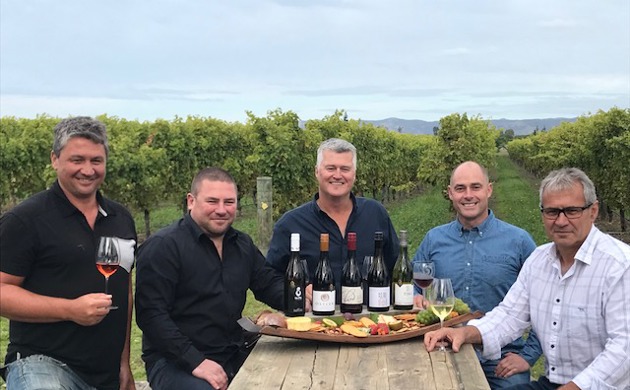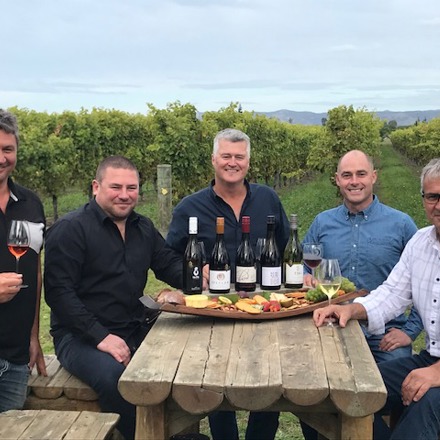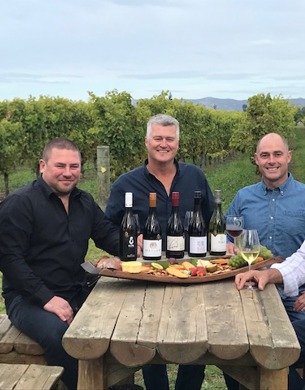Tiki Wines was founded by Royce and Sue McKean. Their company is named in honour of Tiki Tere Mihi, Royce’s great-great grandfather and Ngati Uenuku chieftain. The illustrious chief was one of several to have his portrait painted in Rotorua by renowned oil master Charles Goldie, in 1908.
In the nineties, Sue and Royce McKean had never considered owning a vineyard. They worked on ski fields with their two young daughters in the Craigieburn Range of New Zealand, “good years and great memories but little in the way of money.”
Dreaming of starting something of their own, they headed overseas to work and earn money. They travelled through Europe and North America, but by the time their daughters started school in the UK, they began wanting to give their girls the same idyllic New Zealand upbringing they had both experienced.

They decided to move back to Sumner, Christchurch and immediately knew it was the right choice. After a year, they found an old 325ha sheep farm in Waipara that they fell in love with.
“We were green behind the ears, with limited funds and no track record to speak of in grapes or wine. Not the ideal way to kick off a long-term investment like a vineyard, but we decided this would be our next adventure and we dove into it, boots and all.”
They started their vineyard by planting 60 hectares of Sauvignon Blanc and Pinot Gris. They learnt a lot in their first year but despite the steep learning curve, their passion for the wine industry grew.
Even today, every step to improve is something of a learning process, often done by taking a small part of the vineyard and trialling a new technique or process.
From the beginning, Tiki have valued their people and talk about their team as a whānau (family). “We knew employing amazing people to help us out would be key, and we set about getting a great team together which we now call the Tiki whānau.”

The following year they planted the rest of the vineyard. “When you see a fully developed vineyard you can sometimes forget how much work goes into preparing the soil, putting in the posts, digging wells and planting the vines and then the years of tending those vines before you receive the satisfaction of harvesting your first grapes.”
By the end of 2006, the Waiata vineyard in Waipara was finished and they started looking at developing vineyards in the unplanted Upper Wairau Valley in Marlborough. In 2009 they finally released their first vintage of Tiki Single Vineyard Sauvignon Blanc.
Tiki is committed to sustainable winegrowing. They care for their vines under the guiding Maori principles of Kaitiakitanga: guardianship, protection, and preservation of the earth.
They believe have a responsibility to ensure that our natural resources are protected for future generations and that we put more back into the land than what we take.
“We see ourselves as the guardians of this precious land, it's our job to keep our footprint small to make sure everyone gets to experience the magic of Aotearoa the same way we have.”
Tiki is part of the Sustainable Winegrowing New Zealand certification programme and they are also starting to use organic practises, and desire to move towards managing the vineyards under organic principles in the future.

Tiki is also part of the Tuku wine collective, consisting of six iwi owned vineyards across New Zealand.
The members all share the same values of the land, family and hospitality and by working together, hope to strengthen indigenous winemaking as a whole.
“We can see a lot of potential to do more as a collective. Tuku allows the six wineries that are all relatively small to scale up and leverage off each other. Into the future this allows us to differentiate from those wineries that may just have a Maori name alone.”
As well as Tiki honouring Royce’s great-great-grandfather, the name also represents a hand carved Māori treasure which, when gifted bestows good fortune and love on others. Tiki craft their wines with this same spirit in mind.
“Tiki started from very humble beginnings and we certainly have never forgotten how lucky we are to do what we do in such a beautiful place.”












